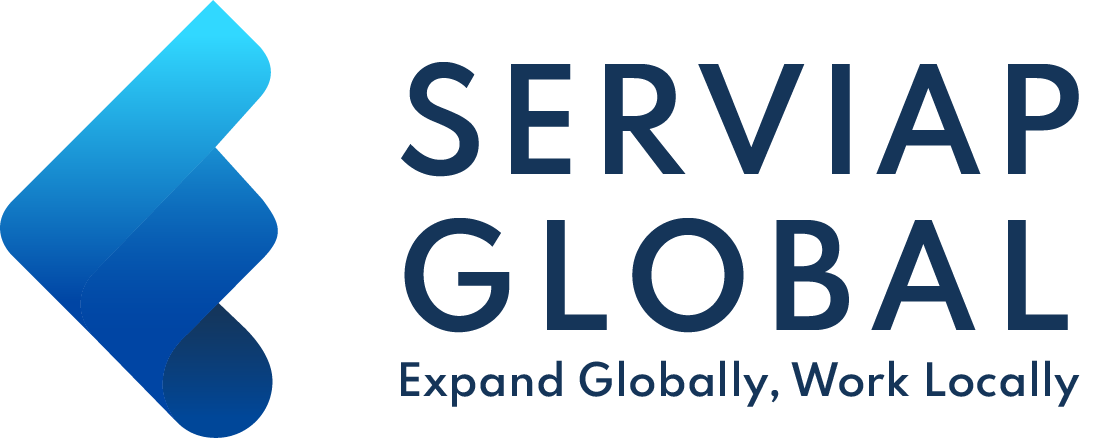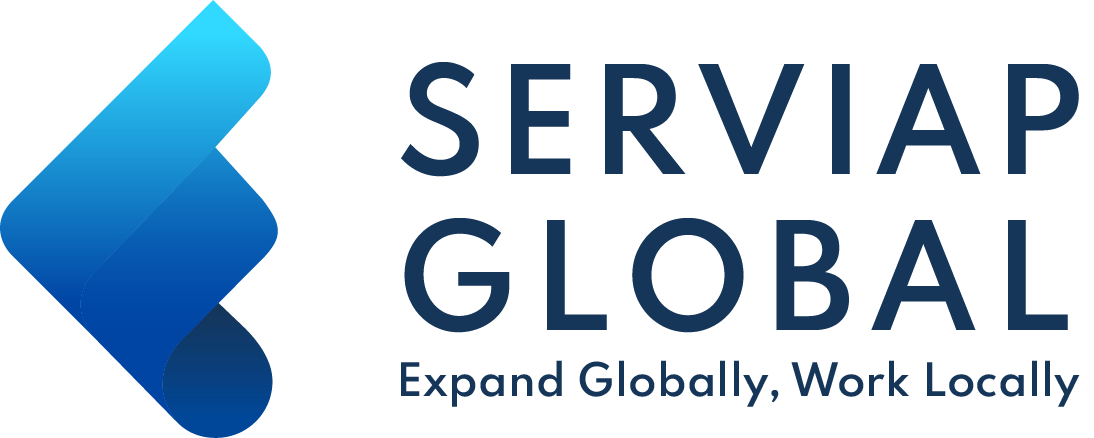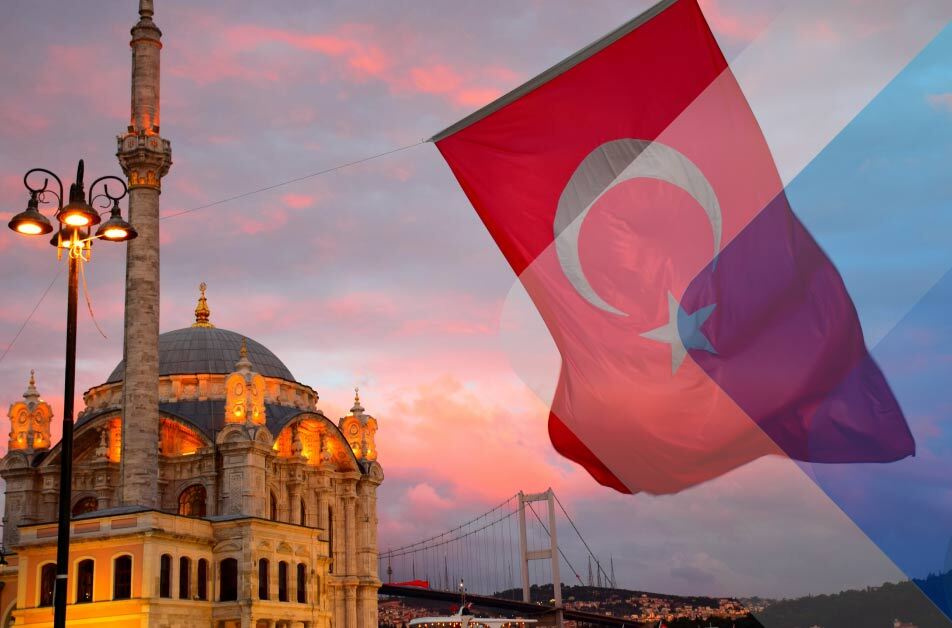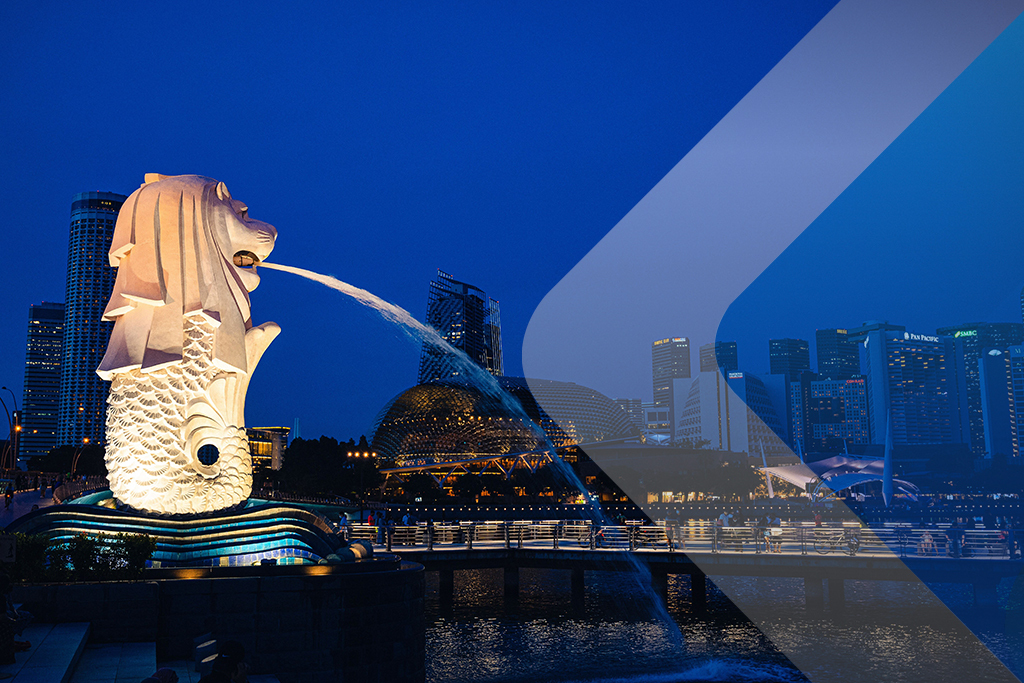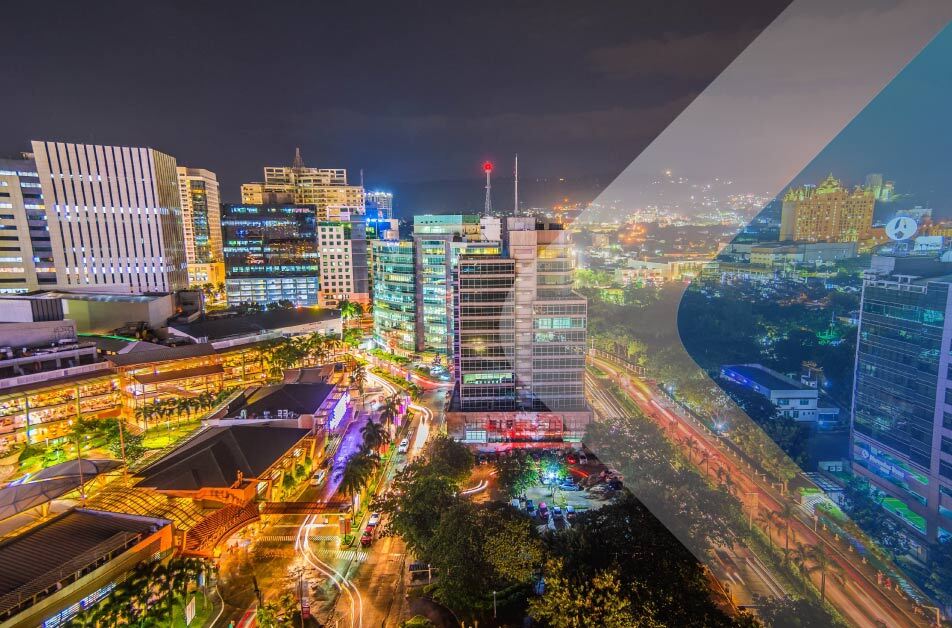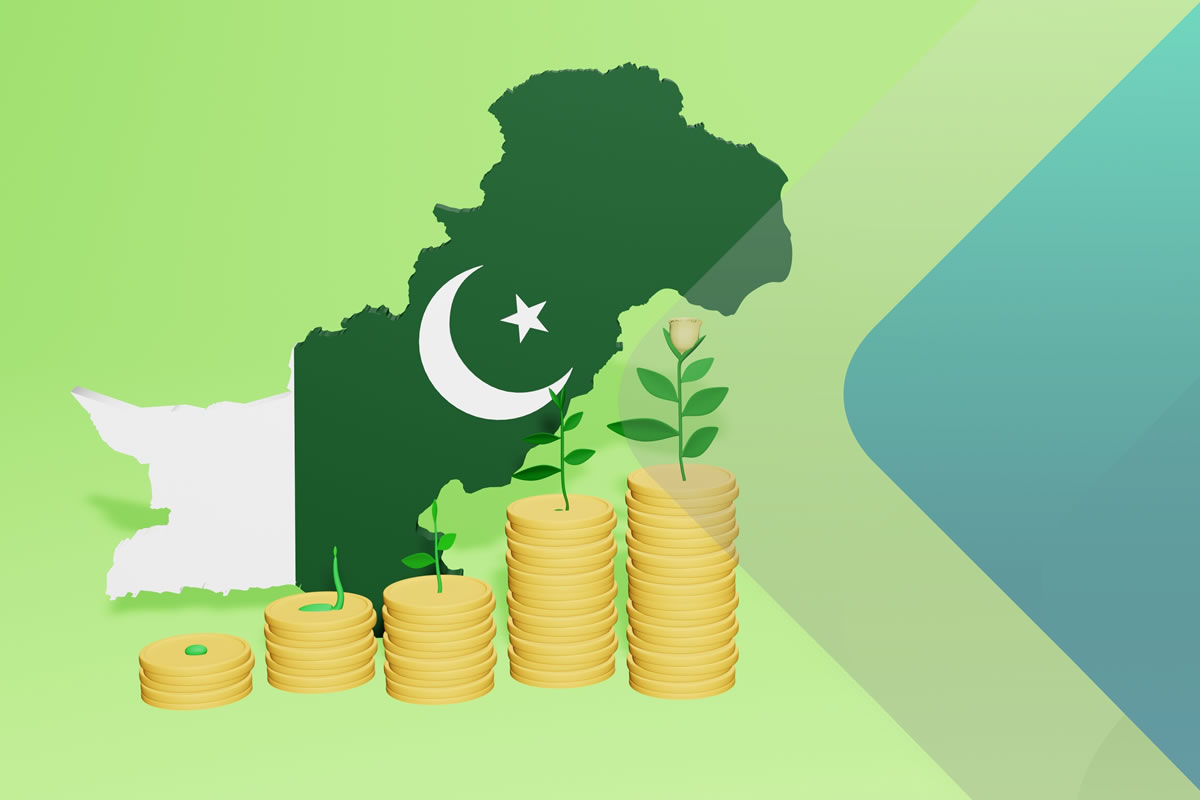Employer Of Record in Indonesia
We make it easy and painless to expand your business into Indonesia. Forget about dealing with local regulations, confusing tax laws and international payroll management. We take care of all that so you don't have to.
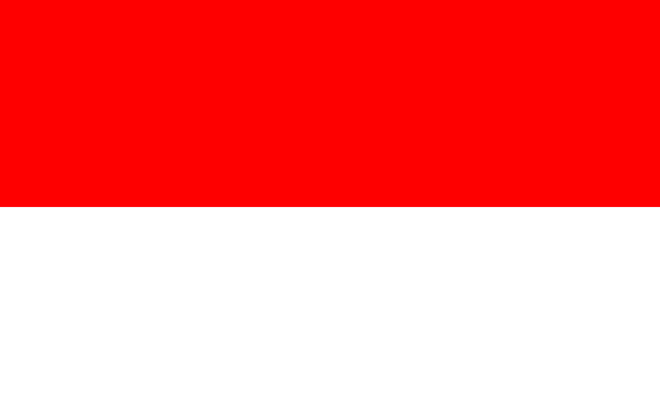
Accelerate your growth into Indonesia Compliantly and hassle-free
How we can help you expand in Indonesia
As your EOR in Indonesia we’d help you expand by hiring employees and running their payroll without establishing a local branch office or subsidiary.
Your candidate is hired by a PEO in Indonesia provider in accordance with local labor laws and can be onboarded in days instead of the months it typically takes. Shortly after, your new employee will be working for you, just like any other member of your team.
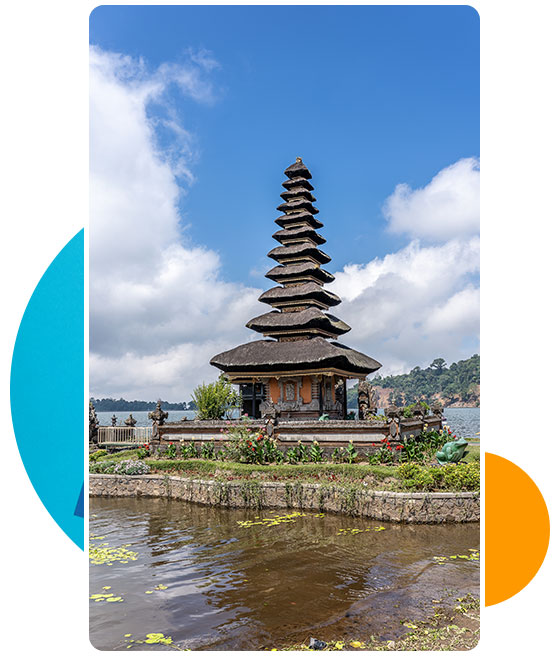

Expand to Indonesia with Serviap Global
Through our PEO and EOR services, you can hire qualified talent in your industry without the trouble of opening your own legal entity.
In just a few days, you can easily and safely build a presence in Indonesia being sure that your staff will be hired in compliance with labor and tax regulations
Quick Facts
Currency:
Indonesian Rupiah (IDR)
Capital:
Jakarta
Payroll Cycle:
Monthly
Language(s):
Indonesian
Indonesia Country Facts
Indonesia is an archipelago situated on the equator. It is well known for its diverse multicultural islands and is the largest island country in the world spanning 1.9 million kilometers with more than 17,000 islands. It is also the most populous Muslim majority country in the world.
Indonesia declared independence in 1945 and they have their own currency, the Indonesian rupiah (Rp). About 16 million people visit Indonesia every year, a country with the world’s biggest young population who love social media and are friendly and welcoming. Indonesia has some of the most active volcanoes in the world and the major cities are Jakarta, Surabaya, Bandung, Bekasi, and Medan.
The Economy
Indonesia has vast natural resources that are still untapped and a developed service and technology industry. The agricultural sector employs 32% of the workforce and the service sector employs 47%. Besides this, Indonesia also benefits from a strong tourist industry. The main exports are coal, cars, footwear, chemicals, textiles, natural gas, and petroleum. It is a strong exporter of fish, cotton, coconut oil, and palm oil. Despite this unemployment and poverty are still a concern.
Small and Medium Businesses
Small and Medium Businesses (SMEs) account for 98.75% of all companies, 63% of business investments and 97% of employment. SMEs hold the key to the future development of the country. There are great opportunities to help grow small businesses into larger productive entities, one such program helps agricultural farmers use digital technology to develop their business.
Starting a Business
Any person from any nationality may start a business in Indonesia, and to do so takes 2-3 months. Investors have the choice of creating a limited liability company with a joint Indonesian partner or to create a limited liability company fully owned by the investor. A domicile letter is needed to show proof of an office lease agreement. Registration will also include connecting with the Ministry of Manpower, applying for healthcare insurance, social security, VAT collection, and getting a tax registration number. As you set up it will be important to get familiar with Indonesia’s Positive Investment List.
Some areas open to 100% foreign owned companies are pharmaceutical products, canned fruits and vegetables, digital businesses, and purification and storage of water.
Payroll
The employee contributes 2% to social security and the employer contributes 3.7%. If a company has less than 10 employees, then it is not required to contribute to social security.
| Minimum Wage | There is no minimum wage. A regional minimum wage may apply which lasts for 12 months. |
| Wages | The median salary a year is 11,400,000 IDR (788 USD) |
| 13th Month Bonus | Employees who work for a full year are entitled. |
| Overtime | Overtime is considered the number of working hours that exceed the employee’s fixed workweek. |
Leaves of Absence Employees have the right to paid absences for the following things: | • Vacation leave: Employees are entitled to 12 days of paid leave.
• Sick Leave: Sick leave covers 100% of pay for the first 4 months, 75% for the next 4 months, 50% for the 4 months after that, and 25% beyond that time.
• Maternity Leave: Maternity leave is three months. |
Tax advantages
To improve the ease of doing business, Indonesia has a tax holiday of 100% for the Corporate Income tax from 5 to 20 years depending on the amount invested. Some of the sectors benefiting from the tax holiday are: pharmaceuticals, robotic machinery, motor vehicles, train and ship components, economic infrastructure, digital economy, and more.
Indonesia also offers accelerated fiscal depreciation and amortization deductions. Indonesia has developed Online Single Submission (OSS) to apply for business licenses and tax incentives.
Renewable Energy
Renewable energies make up 11.2% of its domestic power generation and the main renewable energies used are hydro and geothermal power plants. Currently, the country relies on the consumption of oil with 41%, natural gas with 24%, and coal with 29%. Indonesia is one of the fastest growing consumers of energy, the country plans to reach 23% by 2025.
Business Culture
Indonesians value cooperation and conformity.
- Be on Time
Punctuality is important, so if you are late, make a call to let the host know but is it not unusual for meetings to start and finish late. - Make Connections
To make progress in business, you will need to connect with high-ranking business and political officials. - Avoid Conflict
Indonesians often communicate indirectly because they do not value conflict. The slow development of meaningful business relationships is the norm.
• Meeting by Rank
Because they value hierarchies, Indonesians often enter the meeting room according to rank. People typically stand when the highest-ranking person enters the room.
Food Culture
Rice is the staple food. Indonesians often cook fried rice, fried noodles, barbecued meats and spicy fish stew which they like to cook hot and spicy.
Since there are a lot of tropical fruits, Indonesians make a lot of fruit salads which are eaten fresh. They are also famous for using many spices such as turmeric, cinnamon, lemon grass, and coriander. A famous dish found in West Sumatra is “Asem Padeh”, which is a sour, spicy fish stew.
Population
Indonesia is the 4th most populous country in the world, with a population of 270 million, so it represents a huge opportunity for foreign investments. Of this there are 1,300 ethnic groups in Indonesia. The national motto is “unity in diversity” in the national language of Indonesian, but many locals have their own language as well, and some learn English as a third language.
The urban population accounts for 55.3% of the total population. Tha population values dance which is varied due to the different ethnic groups. There are also many shadow puppet theaters that are a popular way to share cultural norms. Indonesians are masters of martial arts and have developed an umbrella of techniques called Pencak Silat.
Geography
Indonesia has a massive number of islands and about 6000 of them are inhabited. The islands span 3,200 miles. Half of Indonesia is covered by rainforest because of Indonesia’s tropical climate.
The coastal areas are always nice and hot and span 34,000 miles and are located along sea lanes connecting East Asia, South Asia, and Oceania. The tectonic plate called “Sunda Plate” supports the main islands of Sumatra, Java, Kalimantan and Mandura. These larger islands are mountainous and slope to the coasts.
- Pekanbaru, Sumatra
This is one of the best cities for investment and has a lot of banks and tourism. Some current major businesses here include petroleum, oil, pulp, wood-sawmill, rubber-processing, as well as CPOs industries. Shopping centers are another strength in this area, due to its high-income population. - Yogyakarta
This city houses one of the best universities in Indonesia and also has a lot of tourism. Food and beverage, retail, automotive, textile, pottery, handicraft, furniture, fashion, jewelry (especially silver), and leather are popular business ventures here. This is also a perfect place for agriculture pursuits. - Makassar, South Sulawesi
The current mayor is inviting foreign investors to be involved in transportation, energy, maritime, fishery, trading, tourism, healthcare services, property and infrastructure. The economic growth here is incredibly high. - Semarang, Central Java
Industrial areas are being developed here and there is much growth in retail and trading sectors. This is the number one city in Central Java that hosts many foreign investments. The demographic here allows for labor intensive companies such as apparel, working with machinery and textiles.
General Highlights
| Year | 2022 |
| Country | Indonesia |
| Capital | Jakarta |
Num. States / Province | There are 34 provinces: Aceh, Bali, Bangka Belitung Islands, Banten, Bengkulu, Central Java, Central Kalimantan, Central Sulawesi, East Java, East Kalimantan[6], East Nusa Tenggara, Gorontalo, Special Capital Region of Jakarta, Jambi, Lampung, Maluku, North Kalimantan, North Maluku, North Sulawesi, North Sumatra, Papua, Riau, Riau Islands, Southeast Sulawesi, South Kalimantan, South Sulawesi, South Sumatra, West Java, West Kalimantan, West Nusa Tenggara, West Papua, West Sulawesi, West Sumatra, Special Region of Yogyakarta |
| Language | Indonesian |
| Local Currency | Indonesian Rupiah |
| Major Religion | Muslim |
| Date Format | dd/mm/yyyy |
| Thousands Separator Format | 999,999,999.99 |
| Country Dial Code | +62 |
| Time Zone | GMT+7 |
| Population | 273.5m |
Border Countries | Malaysia on Borneo island, with Papua New Guinea on Papua island, and with East Timor on Timor island |
| Continental surface | 3,113,374 mi² |
| Fiscal Year | January 1 to December 31 |
| VAT % | 11% |
| Minimum Wage | Dependant on region |
| Taxpayer Identification Number Name in the country | Nomor Pokok Wajib Pajak |
| Current President | Joko Widodo |
What you need to know about employing personal in Indonesia:
Laws and Agencies that regulate labor relationships
| Laws | Brief Description |
Labor Law (law No.11) | This law is called the Omnibus Law and has an aim of creating jobs. In November of 2021 the Constitutional Court issued that this law be repaired over the next two years. If this is not done it will be declared void. |
| Regulation No. 35 | This regulated Fixed-Term Employment, Outsourcing, Work and Rest Time and Termination. |
| Regulation No. 36 | This law is in regards to Salary. |
| Law No. 2 | This is in regards to industrial relations dispute settlements |
Organization membership | ADB, APEC, ARF, ASEAN, BIS, CD, CICA (observer), CP, D-8, EAS, EITI (compliant country), FAO, G-11, G-15, G-20, G-77, IAEA, IBRD, ICAO, ICC (national committees), ICRM, IDA, IDB, IFAD, IFC, IFRCS, IHO, ILO, IMF, IMO, IMSO, Interpol, IOC, IOM (observer), IORA, IPU, ISO, ITSO, ITU, ITUC (NGOs), MIGA, MINURSO, MINUSTAH, MONUSCO, MSG (associate member), NAM, OECD (enhanced engagement), OIC, OPCW, PIF (partner), UN, UNAMID, UNCTAD, UNESCO, UNIDO, UNIFIL, UNISFA, UNMIL, UNWTO, UPU, WCO, WFTU (NGOs), WHO, WIPO, WMO, WTO |
| Labor Code | No one labor code |
Social Security | There are two organizations in Indonesia for social security: the Social Security Administrator for Health (BPJS Kesehatan) for healthcare and the Workers Social Security (BPJS Ketenagakerjaan) for pensions |
Key Tax and Labor Authorities
| Ministry of Manpower | This is supported by regional manpower service offices spread throughout the country and relates to admin matters, including disputes. |
| The Directorate General of Taxes |
This part of the government deals with taxes. |
Ministry of Finance | This is the main branch of the government responsible for the nation’s finance and state assets. |
Labor Contracts
Written Contracts | Contracts must be written in the Indonesian language using the Latin alphabet. They must include the employee details, position, type of work, place of work, salary and starting date with contract period. |
| Definite term employees and indefinite term employees | There are two types of employees that can be hired in Indonesia under Labour Law. These have similar rights but one is for a definite term and the other indefinite. |
| Probation | Probation periods can last for up to 3 months but Fixed-Term contracts cannot include a probation period. |
Work Hours | Full time work is considered seven hours a day at 40 hours a week and six days per week. Many employees work eight hours per day for five days. The law does not recognize part time work. |
Annual Taxable Income
Residents are taxed on a worldwide income, unless there are double taxation treaties. The Omnibus Law has added provisions to the Income Tax Law stipulating the foreigners who have these treaties can be taxed only on source income from Indonesia. This is only available for the first four years. Non-residents are subject to general withholding tax at 20% in respect of their Indonesian-sourced income.
| Taxable Income in IDR | Tax Rate % |
| Up to 60 million | 5 |
| 60million-250million | 15 |
| 250million-500million | 25 |
| 500million-5billion | 30 |
| 5billion | 35 |
Corporate Tax Rates
In general a flat rate of 25% applied to the net taxable income if the company is situated in Indonesia.
Public Holidays
| Date | Holiday Name |
| 1 Jan | New Year’s Day |
| 1 Feb | Lunar New Year |
| 28 Feb – 1 Mar | Prophet’s Ascension |
| 15 Apr | Good Friday |
| 1 May | Labour Day |
| 2-4 May | Lebaran |
| 26 May | Ascension Day |
| 1 Jun | Pancasila Day |
| 9-10 Jul | Eid al-Adha |
| 29-30 Jul | Islamic New Year |
| 17 Aug | Independence Day |
| 7-8 Oct | Mawlid |
| 25 Dec | Christmas |
Termination
There is no required notice for employers when they let an employee go. Employees however may resign with 30 days notice.
An employee can be let go for the following reasons:
- Employee resigns at her own will
- Grave Misconduct
- Severe Chronic illness for more than 12 months
- Disability due to work related accident
- 5 days of missing work
When an employee is let go they are owed compensation for relocation expenses, annual leave they did not take, and medical and housing allowance. Different severance pay amounts are provided depending on why the employee was terminated.
The standard pay is 1 month of wages if the employee has worked there for less than a year and an additional month for every year of service up to 9 months of salary. There is also a Long Service pay which is 2 months of salary after the first 3 years of service, plus 1 month for every 3 years for a maximum of 10 months for 24 years of service.
You might be interested in reading...
Your one-stop global hiring solution. Secure, reliable, compliant

Premium Support
No matter how big or small, we are ready to answer all your questions- anytime, anywhere.

Regional expertise
Our team of in-country experts help you navigate new markets and cultural nuances

Top-tier Benefits Packages
Great talent deserves great benefits. We offer a competitive range of benefits so that you only attract top-tier talent worldwide.

You remain 0% liable
Shift the worry from your shoulders to ours! We stay on top of regulations so you’re always 100% complaint with local laws
Contact us and start your business expansion today




